Our Constitutional Founding: From Ideas to Institutions
Gain a deeper understanding of our Constitution by studying the political debates surrounding its founding.
July 8–12, 2024
Washington, DC
This course will introduce students to the thought of the two major figures in American Transcendentalism, Ralph Waldo Emerson and Henry David Thoreau. Particular attention will be given to their ideas on individualism, political reform, slavery, and human greatness.
Image: Detail, Autumn, Frederic Edwin Church, Museo Nacional Thyssen-Bornemisza, Madrid
Ryan Hanley on liberal education
This course is part of our residential Political Studies Program. Fellows participate in morning seminars and meet prominent men and women in public life over afternoon and evening sessions. Up to 32 fellows will be selected.

Ryan Patrick Hanley is Professor of Political Science at Boston College. His research in the history of political philosophy focuses on the Enlightenment. He is the author of Our Great Purpose: Adam Smith on Living a Better Life and Love’s Enlightenment: Rethinking Charity in Modernity.

Ryan Patrick Hanley is Professor of Political Science at Boston College. Previously, he was the Mellon Distinguished Professor of Political Science at Marquette University. His research in the history of political philosophy focuses on the Enlightenment.
He is the author of Our Great Purpose: Adam Smith on Living a Better Life (Princeton University Press, 2019), Love’s Enlightenment: Rethinking Charity in Modernity (Cambridge University Press, 2016), and Adam Smith and the Character of Virtue (Cambridge University Press, 2009). His edited volumes include Adam Smith: His Life, Thought, and Legacy (Princeton University Press, 2016), the Penguin Classics edition of Adam Smith’s Theory of Moral Sentiments (Penguin, 2010), and with Darrin M. McMahon, The Enlightenment: Critical Concepts in History, 5 vols. (Routledge, 2010).
His articles have appeared or are forthcoming in American Political Science Review, American Journal of Political Science, Journal of Politics, European Journal of Political Theory, Review of Politics, Social Philosophy & Policy, History of Political Thought, Journal of the History of Philosophy, Revue internationale de philosophie, and Archiv für Geschichte der Philosophie.
Professor Hanley received his B.A. from the University of Pennsylvania, his M.Phil. from Cambridge University, and his Ph.D. from the Committee on Social Thought at the University of Chicago. Prior to Marquette, he was a Mellon Postdoctoral Fellow at Yale University’s Whitney Humanities Center.
Texts:
Readings:
Discussion Questions:
Readings:
Discussion Questions:
Readings:
Discussion Questions:
Readings:
Discussion Questions:
Readings:
Discussion Questions:
Adam J. White
Adam J. White is the Laurence H. Silberman Chair in Constitutional Governance and senior fellow at the American Enterprise Institute, where he focuses on the Supreme Court and the administrative state. Concurrently, he codirects the Antonin Scalia Law School’s C. Boyden Gray Center for the Study of the Administrative State.
Gary J. Schmitt
Gary J. Schmitt is a senior fellow in the Social, Cultural, and Constitutional Studies program at the American Enterprise Institute (AEI), where he studies issues related to the American presidency, the U.S. constitution and its principles, and American civic life.
Vincent Phillip Muñoz
Vincent Phillip Muñoz is the Tocqueville Professor of Political Science and Concurrent Professor of Law at the University of Notre Dame.
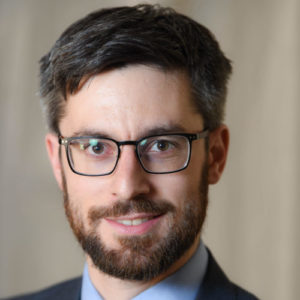
Daniel Burns
Daniel Burns is Associate Professor of Politics at the University of Dallas. His research in political philosophy focuses on the relation between religion and citizenship. He has recently served as a staffer for the U.S. Congress Joint Economic Committee and as a full-time contractor for the U.S. Department of Health and Human Services.
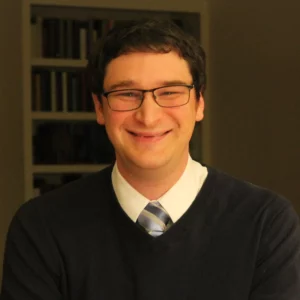
Patrick T. Brown
Patrick T. Brown is a fellow at the Ethics and Public Policy Center, where his work focuses on developing a robust pro-family economic agenda and supporting families as the cornerstone of a healthy and flourishing society. Prior to joining EPPC, Patrick served as a Senior Policy Advisor to Congress’ Joint Economic Committee (JEC).
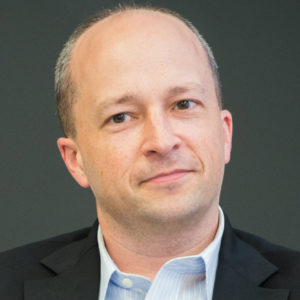
Yuval Levin
Yuval Levin is a Resident Scholar and Director of Social, Cultural, and Constitutional Studies at the American Enterprise Institute and the Editor of National Affairs magazine. Mr. Levin served on the White House domestic policy staff under President George W. Bush.
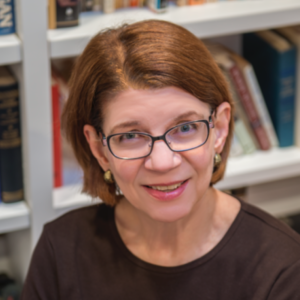
Martha Bayles
Martha Bayles is a fellow at the Institute for Advanced Studies in Culture at the University of Virginia, and since 2003 she has taught humanities at Boston College. She is currently at work on a monograph on the threats to independent journalism around the world; and a book about the importance of “voluntary restraint” in the American tradition of free speech.

Diana Schaub
Diana Schaub is a nonresident senior fellow at the American Enterprise Institute (AEI), where her work is focused on American political thought and history, particularly Abraham Lincoln, Frederick Douglass, African American political thought, Montesquieu, and the relevance of core American ideals to contemporary challenges and debates. Concurrently, she is Professor Emerita of Political Science at Loyola University Maryland, where she taught for almost three decades.
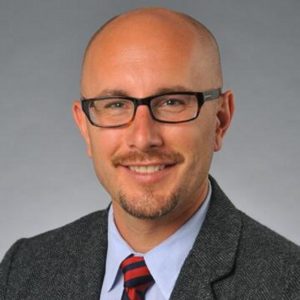
Daniel DiSalvo
Daniel DiSalvo is a Senior Fellow at the Manhattan Institute’s Center for State and Local Leadership and an Assistant Professor of Political Science at The City College of New York-CUNY. His scholarship focuses on American political parties, elections, labor unions, state government, and public policy.